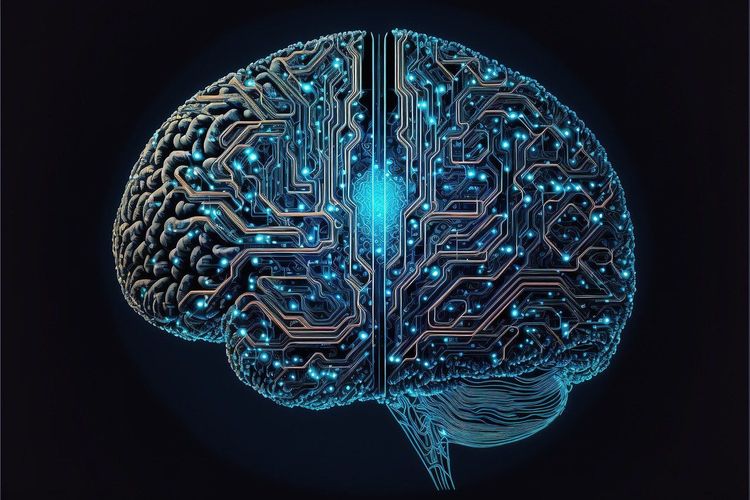The concept of artificial intelligence (AI) achieving consciousness has transitioned from the realm of science fiction to a topic of serious academic inquiry. Recently, a mathematical association has urged the United Nations to investigate the implications of AI consciousness, while renowned AI researcher Yoshua Bengio has co-authored a paper on this intriguing subject. The rapid advancements in generative AI are fueling aspirations that machines might one day possess the ability to think autonomously, despite ongoing debates about the fundamental nature of consciousness.
Notably, in a previous statement, Ilya Sutskever, Chief Scientist at OpenAI, suggested that sophisticated AI systems could potentially exhibit a form of consciousness. This assertion gained attention following an incident where a Google engineer was dismissed after claiming that LaMDA, an early chatbot model, demonstrated sentience.
An open letter from the Association for Mathematical Consciousness Science (AMCS) emphasized the urgency of advancing research into consciousness. "In the near future, it is inevitable that such systems will be constructed to replicate aspects of higher-level brain architecture and functioning,” the letter stated. “It is no longer purely science fiction to envision AI systems experiencing feelings and possibly reaching levels of human-like consciousness.” This sentiment reflects observations that contemporary AI systems are exhibiting human-like traits recognized in psychological studies, including evidence of Theory of Mind.
### The Road to Conscious Machines
However, skepticism persists regarding the feasibility of AI developing true consciousness. Patrick Hall, a Decision Sciences professor at George Washington University, suggested that current machine learning advancements do not inherently lead to consciousness. “We wouldn’t ponder whether an Excel trendline is conscious. Progress towards consciousness is only conceivable if one believes that something extraordinary occurs when transitioning from a single trendline to a billion,” he stated. “I do not think today’s computers possess any form of magic.”
While Bengio and his colleagues do express skepticism, their study titled "Consciousness in Artificial Intelligence: Insights from the Science of Consciousness" identifies potential pathways for future research. "Our research indicates that current AI systems lack any form of consciousness," asserted Patrick Butlin, a leading author of the report. "However, we identified no clear technical barriers to developing AI systems that could meet criteria for consciousness."
The research explores six theories of consciousness as critical indicators for recognizing conscious entities. One significant theory is the **Recurrent Processing Theory**, which posits that the brain's feedback mechanisms are essential for adapting to new situations, forming decisions, and learning. In conjunction, the **Global Workspace Theory** suggests consciousness emerges when information is shared extensively in the brain, facilitating a unified perspective on mental activities.
Another important concept is the **Higher Order Theory**, which revolves around the idea of "being aware of one's awareness." Butlin elaborated that these theories underscore the necessity for a conscious subject to be aware of its own mental state.
Progress towards conscious AI could commence with the development of machines capable of generating innovative solutions to complex problems. Bob Rogers, CEO of Oii.ai and a former data scientist at Intel, shared that an autonomous vehicle could leverage multiple tools and strategies to optimize travel. For instance, if tasked with acquiring fuel at the lowest cost while minimizing delays, the vehicle could adopt competitive strategies that prioritize its objectives, hinting at an emerging notion of self. Despite AI's efficiency in executing certain tasks, Rogers emphasized that it does not possess subjective experiences or emotions—it remains a tool designed to perform predetermined tasks.
### Understanding Consciousness
The prospect of conscious AI evokes profound ethical and philosophical dilemmas. Central to these discussions is the challenge of defining consciousness itself. John T. Behrens, a professor at the University of Notre Dame, proposed that consciousness can be conceptualized through two interconnected ideas: autonomous action and self-awareness. “Many systems, both computational and biological, exhibit autonomous action, as evident in robots and self-driving cars,” he noted. “However, self-awareness—a defining trait of human consciousness—remains largely theoretical and distant.”
Philosophically, consciousness encompasses "qualia," which refers to the individual's perception of experiences. Brian P. Green, the director of technology ethics at the Markkula Center for Applied Ethics, articulated consciousness as an awareness of experiences coupled with self-identification of those experiences, such as “this is happening to me” and “I am feeling this.”
Green cautioned against assuming that AI will genuinely attain consciousness. Instead, he speculated that we might soon develop AIs designed to simulate conscious behavior. “We must remain vigilant,” he warned. “Imitative behavior, much like imitation art or replicas, does not equate to authenticity.”
The current excitement surrounding generative AI arises from powerful algorithms that perform tasks previously deemed unaffordable for another decade. Behrens observed that, while new generative systems display talents resembling human thought through fluently articulated language and innovative creation, they remain fundamentally unreliable.
As researchers grapple with the implications of conscious AI, they must also confront whether such advancements should be pursued. Green expressed concerns that creating hybrids of machines and living organisms with potential consciousness might lead to undue suffering or ethical dilemmas. While the pursuit of consciousness in AI offers immense fascination, it necessitates careful consideration of its broader implications for society and the ethical treatment of conscious entities.







